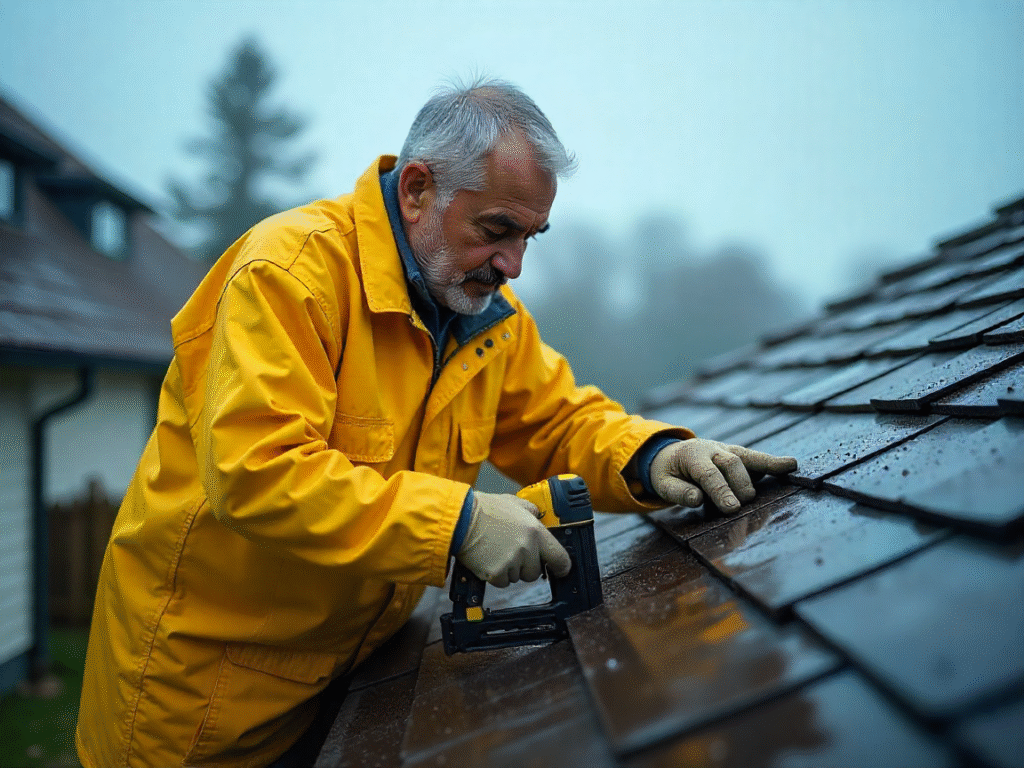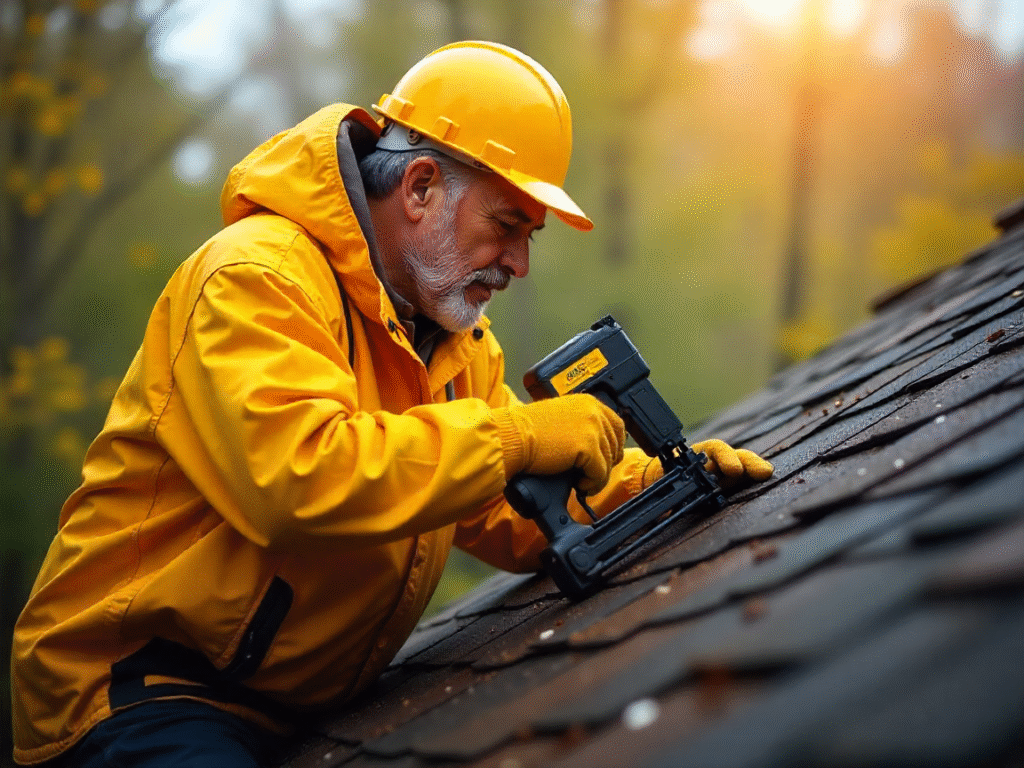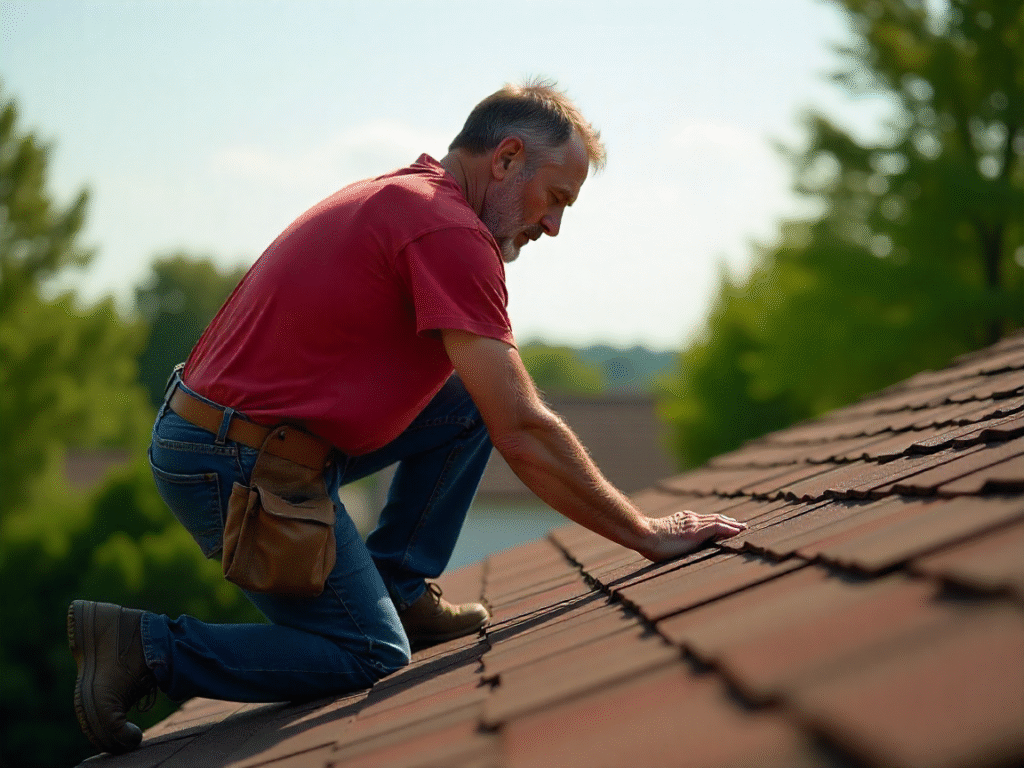If you live in Florida, you already know how tough the weather can be on your home. From blazing summer heat to heavy rains, hurricanes, and year-round humidity, your roof takes a serious beating. Choosing the best roofing materials for Florida weather is one of the most important decisions you can make as a homeowner.
In this guide, we’ll explore the most durable and cost-effective roofing options for Florida homes, along with their pros and cons, so you can make a smart, long-term investment.
Why Roofing Materials Matter in Florida

Florida’s climate is unique. Unlike other states, roofs here must withstand:
- Hurricane-force winds
- Heavy rainfall and flooding
- High UV exposure that degrades shingles
- Salt air near coastal areas causing corrosion
- Year-round humidity leading to mold and algae growth
Because of these factors, not every roofing material is suitable. Choosing wisely can save you thousands in repairs, extend your roof’s life, and keep your home safe during storms.
Asphalt Shingles: The Budget-Friendly Choice
Asphalt shingles are one of the most popular roofing materials in Florida. They are affordable and relatively easy to install, making them a go-to option for many homeowners.
Pros of Asphalt Shingles in Florida
- Cost-effective compared to other options
- Available in many styles and colors
- Easy to replace damaged sections
Cons of Asphalt Shingles
- Lifespan is shorter in Florida’s heat and storms (10–15 years on average)
- Susceptible to wind damage during hurricanes
- Can develop algae streaks in humid areas
👉 Asphalt shingles can work if you’re on a budget, but they may not be the best roofing material for Florida weather if you want long-term durability.
Metal Roofing: Strong and Hurricane-Resistant

Metal roofing has become increasingly popular in Florida because of its strength and long lifespan.
Pros of Metal Roofing in Florida
- Withstands wind speeds up to 140 mph (ideal for hurricane-prone areas)
- Lasts 40–50 years with proper maintenance
- Reflects sunlight, reducing cooling costs
- Resistant to mold, rot, and insect damage
Cons of Metal Roofing
- Higher upfront cost than shingles
- Can be noisy during heavy rain without proper insulation
👉 If you want a roof that can handle Florida’s hurricanes and heat, metal roofing is one of the best investments you can make.
Clay and Concrete Tiles: A Classic Florida Look
Drive through many Florida neighborhoods and you’ll see clay or concrete tile roofs. They’re especially popular in Mediterranean-style homes and coastal areas.
Pros of Tile Roofing
- Extremely durable (50+ years lifespan)
- Resistant to fire, rot, and insect damage
- Performs well in humid climates
- Adds curb appeal and value to your home
Cons of Tile Roofing

- Heavy — may require extra roof reinforcement
- Higher installation cost than shingles
- Fragile under impact (tiles can crack if walked on)
👉 Tiles are one of the best roofing materials for Florida weather, especially for long-term homeowners looking for style and durability.
Slate Roofing: Premium Durability
Slate is a luxury roofing material not as common in Florida, but it’s worth mentioning.
Pros of Slate Roofing
- Can last over 100 years
- Highly resistant to fire, water, and heat
- Elegant, timeless appearance
Cons of Slate Roofing
- Very expensive (one of the costliest roofing materials)
- Heavy — requires strong structural support
- Requires skilled installation (not all contractors handle slate)
👉 While not common, slate is one of the most durable roofing materials for Florida homes if budget isn’t an issue.
Flat Roof Systems: Best for Modern Home
Many modern Florida homes use flat or low-slope roofs, especially in urban areas. These often feature modified bitumen, TPO, or EPDM roofing.
Pros of Flat Roofs in Florida
- Cost-effective for larger surface areas
- Can be used for rooftop decks or solar panels
- Energy-efficient with reflective coatings
Cons of Flat Roofs
- Prone to water pooling if not properly maintained
- Shorter lifespan compared to tile or metal roofs
- Requires frequent inspections to prevent leaks
👉 Flat roofs can work well in Florida, but they demand regular upkeep to handle heavy rain.
Energy Efficiency Matters in Florida

With Florida’s high cooling costs, energy-efficient roofing is just as important as durability. Options like metal roofs with reflective coatings and light-colored tiles can reduce heat absorption, keeping your home cooler and lowering your electric bills.
The Florida Building Code also requires roofing materials that meet strict wind and energy efficiency standards, so always check for compliance before installation.
Choosing the Right Roofing Contractor
No matter which roofing material you choose, proper installation is key. A poorly installed roof — even with the best materials — won’t hold up against Florida’s extreme weather.
Tips for hiring the right roofer:
- Look for contractors licensed in Florida
- Check reviews and past projects
- Ask about warranties on both materials and labor
- Ensure they follow the Florida Building Code
👉 For example, the Florida Building Commission provides guidelines on hurricane-resistant roofing standards.
Final Thoughts
When it comes to choosing the best roofing materials for Florida weather, there’s no one-size-fits-all answer.
- If you want affordability: Asphalt shingles work, but won’t last as long.
- For durability and storm resistance: Metal roofing is a strong choice.
- For style and long lifespan: Clay or concrete tiles are excellent.
- For premium homes: Slate roofing is unmatched in durability.
- For modern builds: Flat roof systems are practical but require care.
By weighing cost, durability, and energy efficiency, you can choose a roof that protects your home and withstands Florida’s tough climate.
More Posts:
San Diego Flat Roof Repair: Everything You Need to Know
Top-Rated Los Angeles Commercial Roofing Services: What You Need to Know








